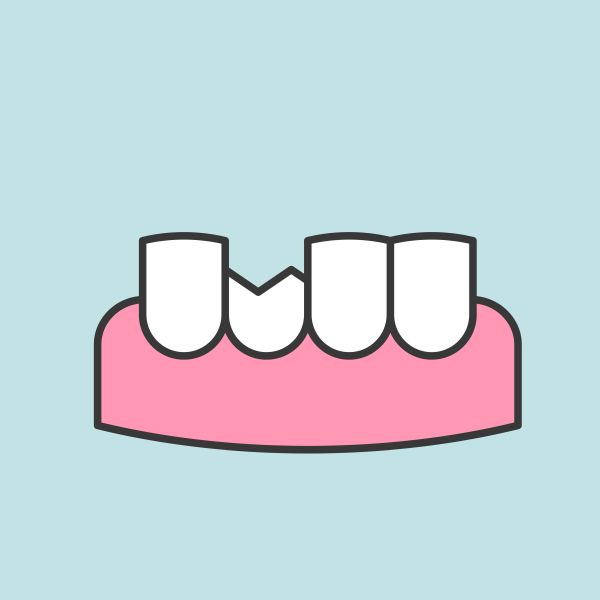5 Ways to Ensure Broken or Chipped Teeth are Fixed

Broken teeth can be a nightmare, affecting both your feeding habits and your social life. Eating certain foods may prove challenging if you have chipped teeth, not to mention the pain that might arise should you consume cold or hot beverages and foods. Walking around with chipped teeth might also harm your social life since it is really difficult to smile at someone who catches your fancy without exposing the horror show behind those lips. Thankfully there are ways to fix chipped teeth and restore your confidence.
The minute you chip your tooth or teeth as a result of either biting on a sharp object or taking a blow to the mouth, there are some immediate measures you can take before heading over to the dentist’s office. These measures include taking some pain relievers if the tooth is quite painful, using wax paraffin or sugarless gum to cover the chipped area in order to protect your tongue, and also avoiding meals until the teeth are fixed.
Ways to fix broken or chipped teeth
The proper way of fixing chipped teeth depends on the extent of the damage. A dentist will carefully examine your teeth, analyze the level of damage and decide on the appropriate cause of action. The dentist may go for the following options when fixing your broken teeth.
1. Re-contouring
If the damage to the teeth is quite minimal, the dentist may opt to go for re-contouring. Re-contouring is a process that involves polishing and shaving off the crack in your tooth. This process will help smoothen the tooth and get rid of the sharp edges and roughness caused by the crack
2. Dental bonding
The dentist may also perform dental bonding, otherwise known as composite bonding. This procedure involves the application of a conditioned liquid on the affected area of the tooth. After the liquid is applied, putty is then applied and molded to cover the area of the crack. The dentist may then use ultraviolet light to harden the putty which will lead to the restoration of the tooth.
3. Dental crowns
The dentist may treat your cracked tooth using dental crowns. Dental crowns are usually applied when the damage to your tooth is quite significant. A crown helps prevent the remaining parts of the tooth from decaying, while also restoring the tooth. Permanent crowns may be made of either porcelain, resin, ceramic, or metal and are a cheaper alternative to implants.
4. Root canals
If someone is suffering from a serious blow that leaves the tooth damaged with nerve endings and roots exposed, the dentist may perform a root canal to prevent having to pull out the entire tooth. The affected area will be disinfected to keep away bacteria. This may be followed up by a crown installation after the root canal.
5. Dental implants
If the tooth is severely cracked close to the gum line, the dentist may have to extract it and replace it with an implant. The dentist will first administer some anesthesia to your gum line before drilling a hole and placing the implant. It will take about two months for the implant to fully integrate to the structure of your jaw, and in no time at all the implant will begin to feel like one of your teeth.
Request an appointment here: https://dentalstudiocolleyville.com or call Dental Studio Colleyville at (817) 885-5188 for an appointment in our Colleyville office.
Recent Posts
A broken tooth is a common dental issue that can happen for many reasons, such as accidents, biting into something hard, or untreated tooth decay. Whether a dentist can save a broken tooth or needs to remove it depends on how severe the damage is and how quickly patients seek treatment. While modern dental techniques…
Fixing a broken tooth right away is important. This dental damage may seem like nothing more than a cosmetic problem, but it can lead to terrible consequences. Seeing a dentist sooner rather than later can provide immediate relief. If you want to find out the treatments for a broken tooth and its complications, here are…
Dental crowns are often costly and require that a dentist remove a significant amount of the tooth's structure to place them. Read on to learn about dental crown alternatives. Other treatment alternatives are sometimes available that are either less expensive or significantly less invasive. Dental crowns are frequently used to restore severely damaged teeth.The following…
A dental crown can fix a broken tooth. An accident, biting on a piece of hard food, or an intense hit to your face can cause this dental injury. You then experience pain and sensitivity, not to mention self-consciousness about the unsightly appearance of your broken tooth. It is a good thing that modern dentistry…


